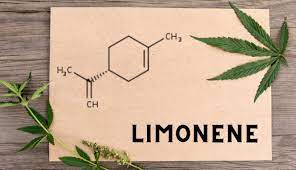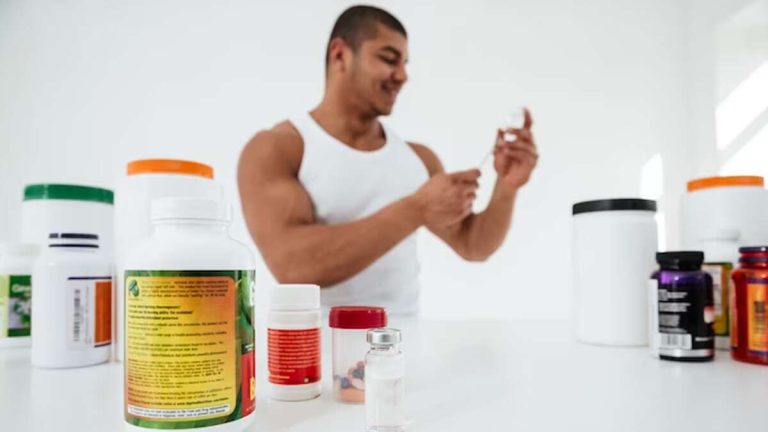Dealing With a Low Testosterone Problem: A Full Guide
Testosterone, the primary sex hormone in men, plays a crucial role in maintaining overall health. It’s responsible for regulating a man’s libido, muscle mass, hair growth, and emotional well-being, among other roles. However, when levels of this vital hormone drop below normal, men can experience a wide array of symptoms such as fatigue, depression, and reduced sexual drive. Understanding the causes, symptoms, and potential treatments of low testosterone is critical for those who may be experiencing these effects. Let’s delve into the fascinating world of this pivotal hormone and explore how to manage if its levels fall short.
Causes of Low Testosterone
A myriad of factors can contribute to diminishing testosterone levels. Aging is one of the primary factors, with testosterone levels naturally declining as men get older, typically starting around the age of 30. Besides aging, other causes include chronic diseases like diabetes, obesity, liver or kidney disease, hormonal disorders, and certain infections. Furthermore, lifestyle factors such as stress, inadequate sleep, alcohol abuse, and poor diet can also negatively influence testosterone production.
It’s important to note that low testosterone can also result from medical treatments, such as chemotherapy or radiation treatment for cancer, or it may be a side effect of medications, particularly hormones used to treat prostate cancer. Sometimes, the problem can be genetic, with certain inherited conditions interfering with the body’s ability to produce testosterone. Understanding the potential causes of low testosterone allows for a more targeted approach to treatment and management.
Symptoms of Low Testosterone
The symptoms of low testosterone can manifest in a variety of ways, and the severity differs from person to person. Some individuals may experience only a few symptoms while others may have numerous. The most common signs include decreased sex drive or libido, difficulty achieving an erection, infertility, fatigue, irritability, depression, hair loss, and reduced muscle mass. Low testosterone can also cause cognitive changes, including memory loss and difficulty concentrating. Additionally, some men may experience hot flashes or night sweats.
It’s essential to recognize that these symptoms can overlap with other medical conditions, making it challenging to pinpoint low testosterone as the root cause. A proper diagnosis requires a thorough evaluation by a healthcare professional, including a physical examination and blood tests to measure testosterone levels. Once diagnosed, treatment can help alleviate these symptoms and improve overall quality of life.
Treatment Options for Low Testosterone

The most common form of treatment for low testosterone is hormone replacement therapy (HRT). This approach involves replacing the missing testosterone with synthetic versions administered in various forms such as injections, gels, patches, or pellets inserted under the skin. Whether you opt for testosterone replacement therapy in Albuquerque, or elsewhere, it can help alleviate symptoms and restore testosterone levels to a healthy range. Once you undergo treatment, your healthcare provider will monitor your progress regularly and adjust the dosage as needed.
Another option for managing low testosterone is lifestyle changes. Regular exercise, a nutritious diet, stress management techniques, and getting adequate rest can all contribute to increased testosterone production. Reducing alcohol consumption and quitting smoking can also have a positive impact on testosterone levels.
In some cases, supplements may be recommended to help boost testosterone levels, but it’s essential to consult with a healthcare professional before taking any. Additionally, addressing underlying health conditions that may be causing low testosterone, such as diabetes or obesity, can also improve hormone levels.
Living with Low Testosterone
Living with low testosterone can present its unique challenges, but it’s crucial to remember that treatment options and lifestyle modifications can significantly improve the condition. Regular appointments with your healthcare provider are key to managing the condition effectively, as they can monitor your testosterone levels and adjust your treatment plan accordingly. It’s also beneficial to connect with others who are in the same situation through support groups or online communities. Sharing experiences and coping strategies can provide invaluable emotional support and make you feel less isolated.
For example, making dietary changes and exercising regularly can not only improve testosterone levels but also positively impact overall health. Finding enjoyable ways to stay physically active and incorporating stress management techniques into your routine can help alleviate some symptoms of low testosterone.
Prevention of Low Testosterone

While certain causes of low testosterone, like aging or genetic conditions, cannot be prevented, there are lifestyle choices that can help maintain healthy testosterone levels. Regular physical exercise, especially resistance and high-intensity interval training, can boost testosterone production. A balanced diet with adequate protein, healthy fats, and low in processed foods can also contribute to hormone health. Managing stress through techniques like meditation, yoga, or deep breathing and ensuring enough quality sleep can also help regulate testosterone levels. Limiting alcohol intake and refraining from illicit substance use can also keep your testosterone levels in check. Lastly, regular check-ups will help detect any potential issues early, allowing for prompt treatment and prevention of further complications.
Living with low testosterone can be challenging, but adopting certain coping strategies can make it more manageable. Engaging in regular physical activity, especially strength-training exercises, can help improve symptoms related to decreased muscle mass and fatigue. It’s also beneficial to maintain a healthy, balanced diet rich in lean proteins, whole grains, fruits, and vegetables to support overall health and hormone production. Mindfulness practices, such as yoga and meditation, can be effective in managing stress, a factor that can exacerbate low testosterone symptoms. Social support, from both healthcare professionals and peers experiencing the same condition, can also be immensely helpful. Knowing the right resources and strategies to cope with low testosterone can make a significant difference in managing the condition.
Alternative Therapies for Low Testosterone
In addition to conventional medical treatments and lifestyle modifications, some men may discover relief from low testosterone symptoms through alternative therapies. Acupuncture, for example, is believed to enhance the body’s energy flow, potentially boosting testosterone production. Certain herbs and supplements, like fenugreek and D-Aspartic acid, have been researched for their capacity to increase testosterone levels. However, further studies are necessary to confirm their effectiveness and safety. Mind-body practices such as tai chi and qigong can alleviate stress and enhance overall well-being, indirectly influencing testosterone production.
Low testosterone is a condition that affects many men, but it doesn’t have to dictate the quality of your life. From understanding its causes and symptoms to exploring various treatment options, both conventional and alternative, this guide offers comprehensive insights into managing low testosterone effectively. Whether through hormone therapy, lifestyle modifications, or alternative therapies, there are many ways to combat low testosterone and improve your overall well-being. Remember, it’s essential to consult with your healthcare provider before starting any new treatment regimen. By actively addressing the issue and adopting strategies to cope with low testosterone, you can navigate the challenges of this condition and lead a healthier, more fulfilling life.







